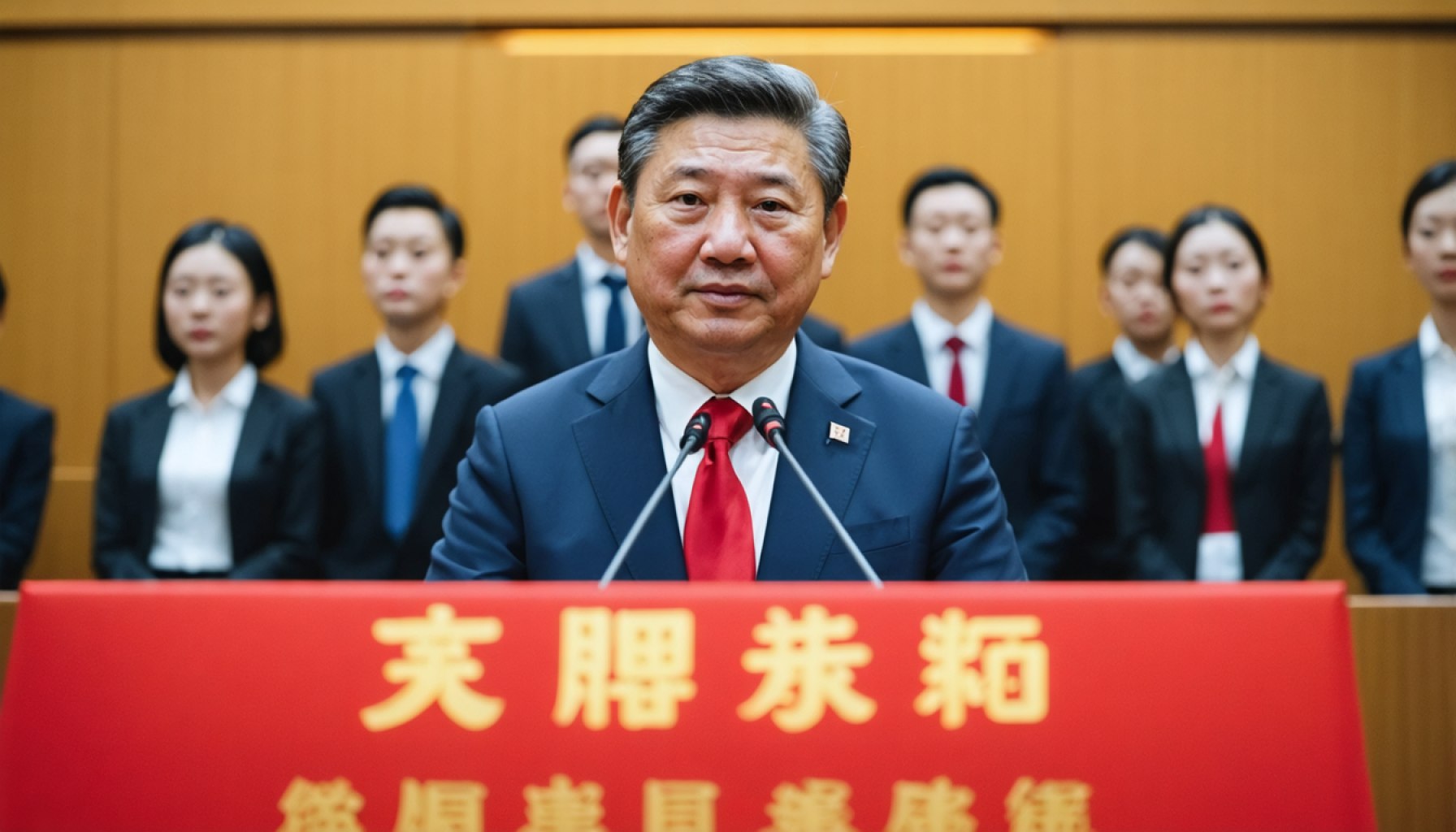- The Communist Party’s watchdogs are investigating Jiang Chaoliang, a key political figure in China, for alleged disciplinary and legal violations.
- Jiang has held significant roles, including Governor of Jilin Province and Party Secretary of Hubei, contributing to economic growth and policy reforms.
- The Central Commission for Discipline Inspection announced the investigation, marking a push for integrity and transparency by Chinese authorities.
- This case underscores the demand for accountability and ethical conduct, indicating that even top political hierarchies are subject to scrutiny.
- The unfolding investigation serves as a cautionary tale that no position is immune to the consequences of corruption.
- China’s governance is evolving to emphasize ethical standards and combat corruption, reinforcing public trust.
Amid a backdrop of political intrigue and accountability, the powerful watchdogs of China’s Communist Party have set their sights on Jiang Chaoliang. A figure deeply entrenched in the heart of China’s political landscape, Jiang now finds himself under the unforgiving glare of scrutiny.
Born in August 1957, Jiang’s career has woven through some of China’s most significant regional hubs. He once stood as the governor of Jilin Province and later ascended to the role of Party Secretary in bustling Hubei. His legacy includes economic growth and policy reforms that served as milestones along his path to becoming a key figure in the National People’s Congress.
The site of the Central Commission for Discipline Inspection flickered with the announcement, casting a shadow over Jiang’s illustrious career. Allegations swirl around him, suggesting serious violations of discipline and law. These accusations underline a renewed push by Chinese authorities to root out corruption within their ranks, a campaign striving to uphold integrity and transparency.
As the investigation unfolds, it resonates through the corridors of power, sending a clear signal: the intricate web of influence and authority is not to be wielded without accountability. Jiang’s story now serves as a cautionary tale, a reminder that even those at the apex of political hierarchy remain subject to the watchful eyes of justice.
For many, this dramatic turn highlights the evolving ethos of governance in China, one that demands adherence to ethical conduct.
The lessons are stark—no position is untouchable and no power beyond question. It’s a narrative of vigilance, echoing the sentiment that corruption will not fester in the shadow of public trust.
The Rise and Potential Fall of Jiang Chaoliang: What It Means for China’s Political Landscape
How Jiang Chaoliang’s Case Reflects Broader Anti-Corruption Efforts
Jiang Chaoliang’s investigation is a significant demonstration of China’s ongoing anti-corruption campaign. In recent years, Chinese President Xi Jinping has intensified efforts to combat corruption within the Communist Party. This campaign, spearheaded by the Central Commission for Discipline Inspection (CCDI), targets high-ranking officials, also known as “tigers,” and lower-level “flies.”
Real-World Use Cases and Implications:
1. Political Stability: The case underscores the Chinese government’s dedication to maintaining political stability by rooting out corruption. This scrutiny serves as a deterrent, reminding officials that integrity is paramount.
2. International Perception: For international investors and foreign governments, these efforts signal a commitment to transparency and integrity, improving China’s business environment and global reputation.
3. Public Trust: By tackling corruption, the government aims to bolster public confidence. While some citizens see these efforts as genuine, others remain skeptical, often perceiving them as politically motivated maneuvers to eliminate rivals.
Market Forecasts & Industry Trends
The political climate in China can heavily influence its economic and market trends:
1. Economic Policy Shifts: If Jiang Chaoliang’s policies are under review, we might anticipate shifts in economic strategies in regions he influenced, particularly in Hubei and Jilin Provinces.
2. Investor Caution: Political uncertainties can cause hesitancy among investors, impacting market stability and investment flows into the regions involved.
Reviews & Comparisons
Jiang Chaoliang’s case can be compared to other high-profile investigations under China’s anti-corruption campaign. Notable cases include Zhou Yongkang and Bo Xilai, both of whom were powerful figures brought down by corruption charges.
– Zhou Yongkang: Former security chief, whose arrest in 2014 marked one of the highest-profile inquiries.
– Bo Xilai: Former party secretary of Chongqing, whose trial in 2013 exposed widespread graft and abuses of power.
Controversies & Limitations
While the anti-corruption drive is lauded for increasing accountability, it is not without controversy:
1. Selective Targeting: Critics argue that the campaign selectively targets those opposed to the current leadership, raising questions about its impartiality.
2. Transparency of Investigations: Some claim that the lack of transparent procedures in these investigations could lead to injustices or abuse of power.
Quick Tips for Staying Informed
– Follow Reputable News Sources: Stay updated on political developments through trusted media outlets like BBC News and Reuters.
– Understand the Politburo Standing Committee: Grasp the dynamics of China’s top decision-making body to comprehend the broader implications of such investigations.
– Watch for Policy Changes: Keep an eye on economic and social policy changes in regions previously influenced by Jiang to anticipate market impacts.
Conclusion
Understanding the implications of Jiang Chaoliang’s case helps one navigate the complexities of China’s political environment. China’s commitment to anti-corruption is clear, aimed at promoting integrity and global confidence. However, the political motivations behind these efforts continue to generate debate, necessitating a close watch on future developments.
